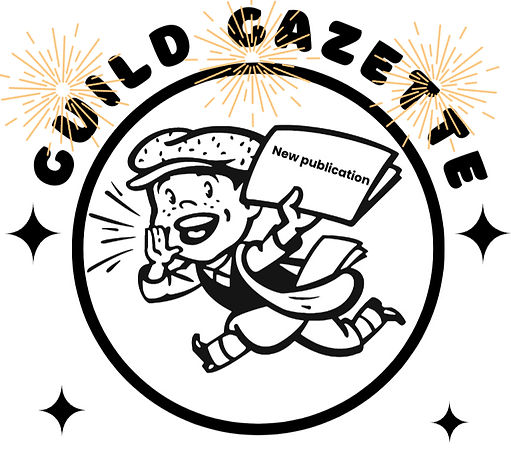How to Break Artist's Block
- Savannah Scott
- Apr 10, 2022
- 3 min read
Updated: Jul 5, 2022
By Savannah Scott
Summer is around the corner, and for students, that means schedules will no longer be crowded with homework, exams, and SAT’s. When school ceases, you may decide to dedicate your former school hours to your violin practice, writing, or painting. You sit at your desk, pen and paper in hand, ready to unleash your artistic prowess, but you stop.
Unmotivated, you sit there for thirty minutes with no progress. If this has happened to you, chances are, you have an artistic block. Artistic block refers to your inability to express your creative desires. This can happen to writers, musicians, and any else in the arts. Despite this burdensome feeling, there are three ways that you can combat it and allow your innovative ideas to take flight.
Studies show that an estimated one million public school students participate in the arts (State). Considering this large statistic, it is safe to say that you are not alone in your artistic journey. One key way to eliminate your artistic block is to change your perspective. Despite the fact that over one million students participate in the arts, not everyone does it for fun. Maybe you take violin because it is the easiest way to sound impressive on your resume, or you play piano because you could get a full ride scholarship. If one of these reasons resonates with you, it is safe to say that you may be experiencing artist’s block because you feel an immense pressure. For this reason, you should change your perspective. “Vinay Saranga, MD, a psychiatrist and founder of Saranga Comprehensive Psychiatry, told INSIDER that oftentimes one of the first signs someone is being too hard on themselves is when they begin using negative, pessimistic language to describe themselves and their life. He told INSIDER that some of these common negative self-talk phrases include: 'I'm just not good enough to … ,' 'I wish I could be as good as … ,' and 'Things don't usually go my way,'" (Guerra). Though this is not always the reason, it is very plausible that you could be putting immense pressure on yourself and that is causing your artistic block. For this reason, you should change your perspective on your activity and give yourself positive pep-talks. Instead of “I will never be able to do this correctly,” try “I will be able to do this eventually; all it takes is one more time.” Changing your perspective will help you to eliminate artistic block by changing your negative narrative to a more positive one.
If you’ve tried changing your perspective, yet you still feel unmotivated, give this tip a try. Where do you normally write? In the house? In your room? If so, perhaps changing your environment will break your artist’s block. Try going outside and surrounding yourself with God’s glorious earth. Research demonstrates that “exposure to nature has been linked to a host of benefits, including improved attention, lower stress, better mood, reduced risk of psychiatric disorders and even upticks in empathy and cooperation (“Nurtured”).” Who knows? Maybe the crystal blue skies and grass will put everything into perspective. Perhaps the gentle pitter patter of rain will inspire a poem. Whatever the activity, whatever the weather, try connecting with the outdoors because it will inspire you to continue.
What do you do when all else has failed? When you’ve changed your perspective and your environment, what’s left? When you have done everything else you possibly can, maybe it’s time to change your ways. Take a minute to examine the methods you use. Maybe when you practice violin, you try to play the whole piece at once, or when you practice dancing, you try to perform the entire routine on your first try. This is probably very overwhelming and might be causing you to stumble, creating an artist's block. Instead of this system, try these simple steps: Define your end goal, set miniature goals to achieve the end goal, push past your comfort zone, celebrate your miniature victories, aim to learn from these experiences (Proverbs 1:5), and finally, be passionate about what you do (Wild). If you change your system and try different ways to achieve your goal, you are sure to eliminate your artist’s block and execute your objective.
Whether you are a painter, musician, or writer, evey artist wrestles with artist’s block. Hopefully, this article helps you tap into your inner artist so that you can accomplish your summer goals.
Works Cited
Guerra, Julia. “9 Signs You're Being Too Hard on Yourself.” Insider, Insider, 5 Mar. 2019, https://www.insider.com/signs-youre-being-too-hard-on-your-self-2019-2.
“Nurtured by Nature.” Monitor on Psychology, American Psychological Association, Apr. 2020, https://www.apa.org/monitor/2020/04/nurtured-nature.
“State of the Arts: One Million Public School Students Participate in Arts Education – Arts ED NJ.” Arts Ed NJ State of the Arts One Million Public School Students Participate in Arts Education Comments, https://www.artsednj.org/state-of-the-arts-one-million-public-school-students-participate-in-arts-education/.
Wild, Megan. “7 Steps to Accomplish Anything.” Everyday Power, 21 Oct. 2020, https://everydaypower.com/7-steps-accomplish-anything/.





Comments